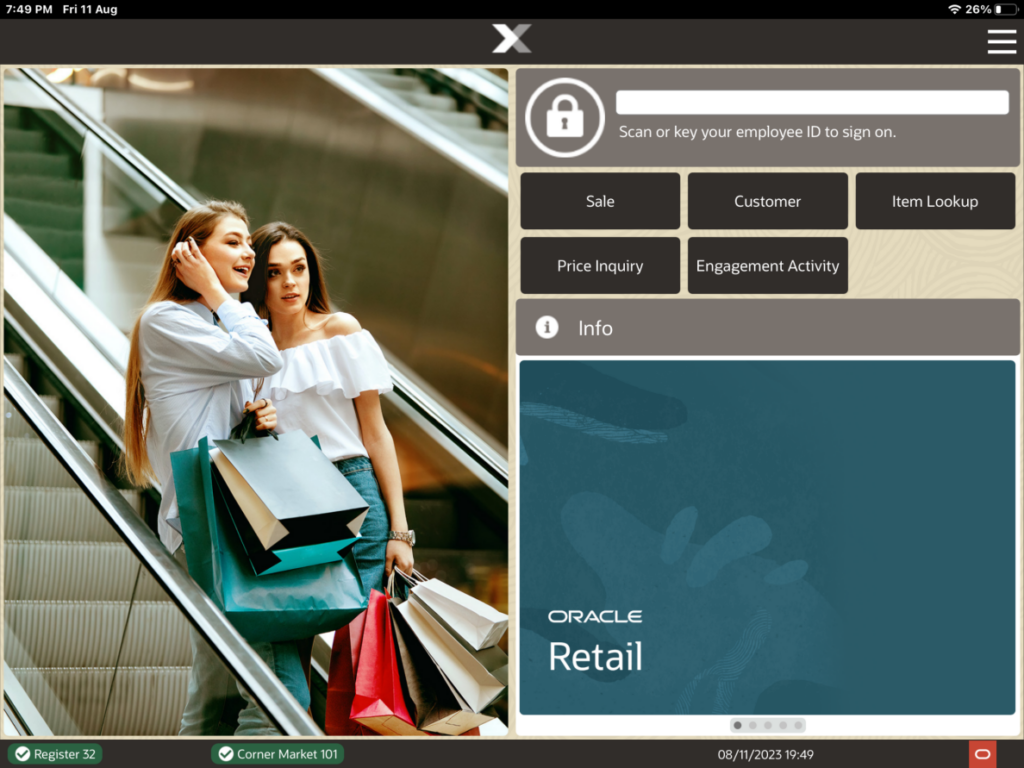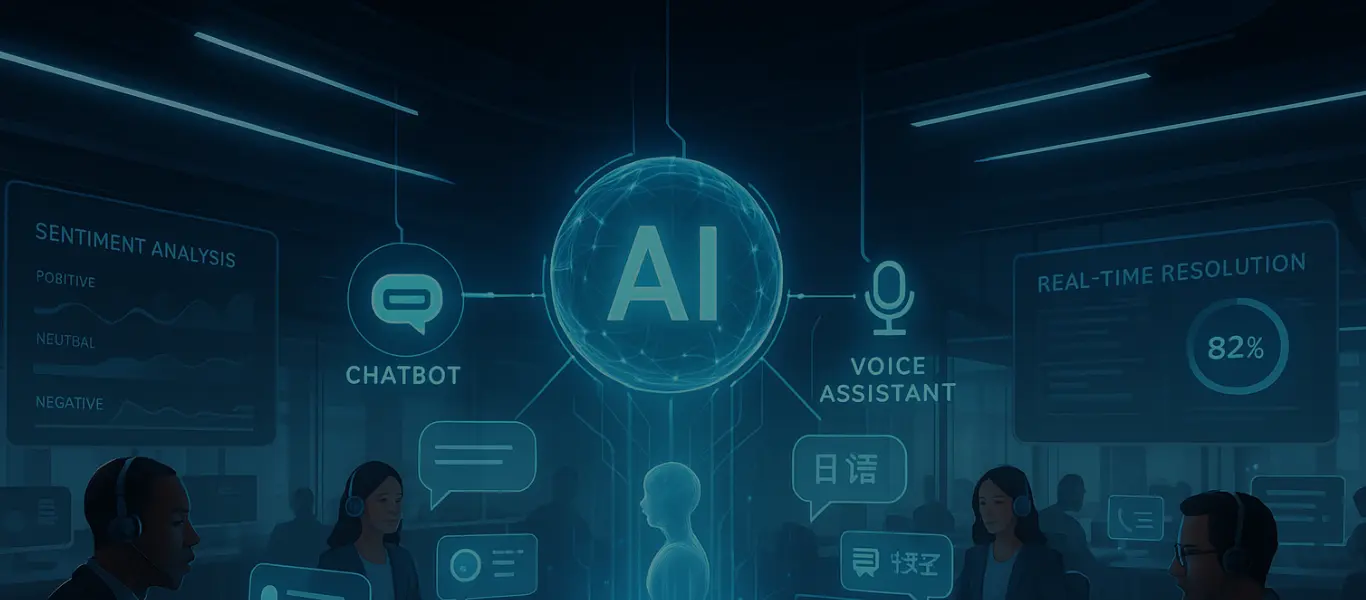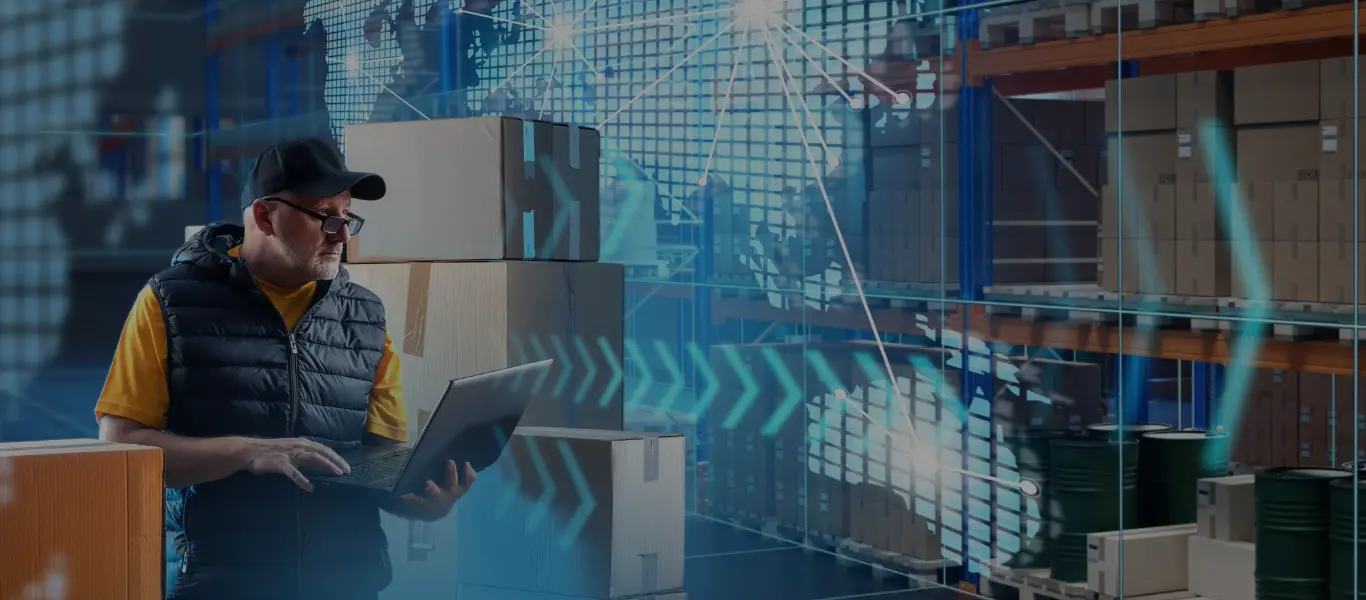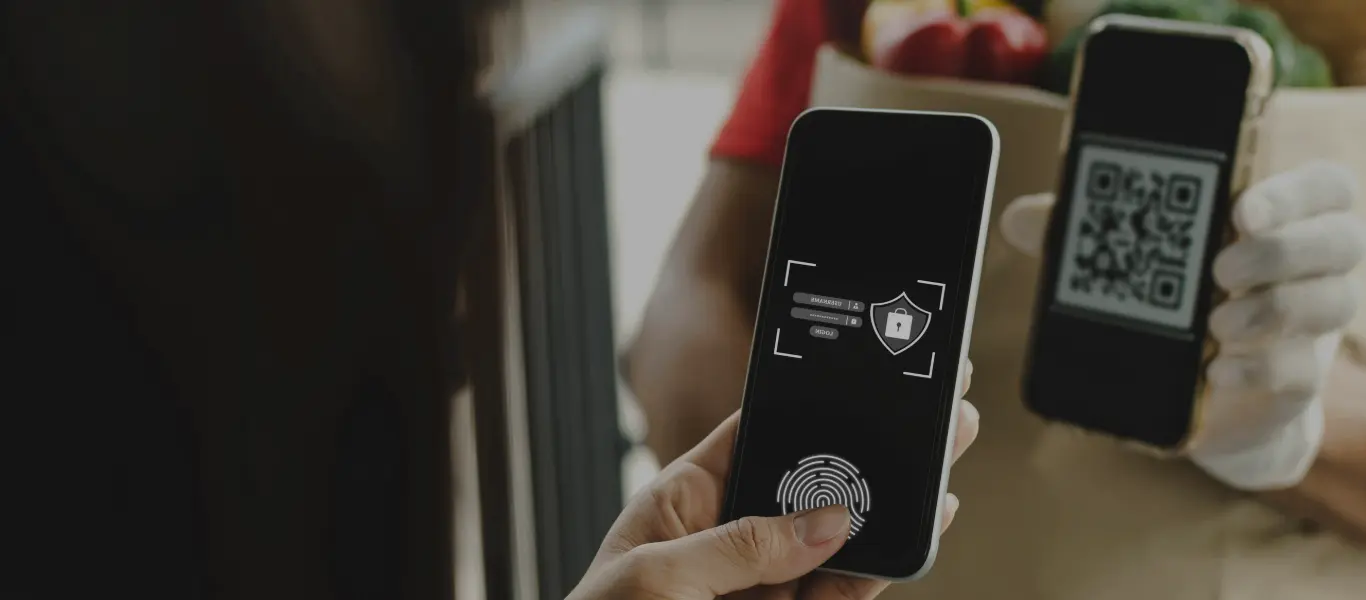Updated On – Aug, 16, 2024
In today’s mobile-centric world, the retail industry has shifted its focus toward Mobile Point-of-Sale (MPOS) systems to enhance customer service and foster business growth. In some retail establishments, the conventional fixed POS has given way to mobile POS solutions – handheld and tablet devices, allowing sales associates and businesses to liberate themselves from fixed locations. The transition from traditional POS to mobile POS is a strategic response to meet the evolving needs and preferences of modern consumers. In this article, we will explore the crucial factors that form the foundation of a successful process for adopting MPOS solutions.
Current MPOS Landscape
The impetus for embracing the mobile revolution transcends consumer demand with other significant factors at play. The rapid surge in mobile users, as forecasted by Statista and Global News Wire, underscores the profound shift. Presently, VITAG and Captera report that over 80% of global retailers leverage MPOS solutions, and Global News Wire predicts that more than 50% of retailers prioritize MPOS adoption, highlighting its escalating importance.
Moreover, MPOS is recognized for enhancing the customer experience, with 87% of retailers acknowledging its positive impact, as noted by Vitag. According to NewStore, 60% customers favor mobile shopping apps. The use of MPOS systems is expected to double in North America from 2020 to 2025. Significantly retailers risk losing 28% of shoppers if they do not have contactless payment options. Global Market Insights also projects significant growth for MPOS.
Mobile devices, which are increasingly replacing computers or laptops not just in retail but also in sectors such as hospitality and healthcare, are further advancing this trend.
Key Reasons for Adopting MPOS
Now, let’s delve into some of the reasons behind retailers embracing MPOS solutions:
- Convenient transactions: MPOS eliminates the need for customers to wait in queues or scan items at traditional registers. With solutions like Apple Pay or Tap-to-Pay, customers can simply tap their phones for a quick checkout.
- Space efficiency and dynamic store layout: MPOS saves space, offering flexibility for transactions anywhere. Eliminating fixed POS registers enhances store layouts, promoting dynamic spaces for interactive shopping, and improving customer engagement.
- Ease of setup: MPOS systems are cost-efficient, secure, and easy to set up. Typically, it involves downloading an app and ensuring compatibility with card types and mobile software. This simplicity contrasts with the complexity of traditional POS systems.
- Facilitate contactless payments: Mobile POS systems facilitate digital wallet payments, including Google Pay, Apple Pay, and Tap-to-Pay, through contactless NFC technology. This expedites transactions, ensures privacy on the customer’s device, and promotes social distancing, enhancing the overall efficiency and safety of the payment process.
- Improving customer experience: Adding a mobile point-of-sale system into the transaction-handling processes, can make transactions quicker and more convenient for customers. It also allows the acceptance of various local and alternative payment methods.
Critical Factors in Choosing an Optimal MPOS
In order to remain competitive, it is crucial for retailers to adopt MPOS solutions. Choosing the best MPOS solution can be challenging due to the diverse options available, each offering different features. The decision ultimately rests with the retailer and depends on their business requirements. While evaluating any MPOS solution business and IT must consider the following factors:
- The extent to which POS functionalities are supported on MPOS; the more, the better.
- The number of users utilizing mobile registers.
- The capacity for network-connected hardware for hardware pooling between MPOS and POS devices.
- The reliability, security, and stability of the store network.
- The ease of extending the existing POS solution on MPOS solution.
- The simplicity of deploying additional registers.
- The range of functionalities is supported within mobile apps and cameras, scanners, etc. without the need for additional hardware.
- The extent to which day-to-day operations of cashiers involve filling long forms on the mobile, considering potential delays due to screen size.
- The percentage of POS screens can be seamlessly available on Mobile POS; screens with many dropdowns can cause inconvenience to mobile users.
Need help with your MPOS implementation?
Oracle Retail’s Xstore MPOS
There are several good MPOS solutions in the market. One of the industry-leading technologies is Oracle Retail‘s Xstore Mobile. Retailers considering Oracle Xstore along with Xstore Mobile can experience significant benefits. Xstore Mobile is essentially Xstore on mobile devices, functioning similarly to the desktop version. Notably, the latest versions, Xstore 22 and 23 maintain consistent looks and functionality across various devices, including new desktops, handhelds, tablets, and thin clients. This evolution of Oracle Xstore indicates a gradual shift towards a mobile-centric world, where graphics, user interface, and touch screens offer a uniform experience. The mobile-centric approach ensures that almost all features are supported on mobile devices, making it a top-notch choice in the industry. For additional information on Xstore Mobile, including details on its architecture, benefits, challenges, etc, please consult the MPOS whitepaper.

Extending with Thin Client and Self Checkout
Since MPOS or Xstore Mobile client rely on the Xstore Mobile Server, other form factors like Thin Client and Self Checkout also depend on this server. These designs are versatile for any store setup, whether mobile-only or hybrid. Thin-client and self-checkout share the same architecture as Xstore mobile clients, supported on Windows 10-based Oracle Workstation 610 and 310 UI. These clients, along with handhelds and tablets, require the Xstore Mobile Server set up on a primary or lead register, either on-premise or in the cloud. Mobile clients offer flexibility for taking orders anywhere in the store, while thin clients provide a desktop-like experience. Self-checkout streamlines transactions without employee assistance. The roles and few more benefits of thin-client and self-checkout are briefly explained below:
Thin Client: Thin clients are low-power, low-storage devices requiring a server for operation. They resemble desktop registers but function like tablets. Using the standard Xstore installer, Thin Client installs a lightweight client application without needing a database.
Self-Checkout: Self-checkout registers allow customers to scan items and pay without assistance, requiring the same mobile server as other clients. Installation is similar to Thin Client, and these devices improve checkout speed, reduce wait times, and cut costs by minimizing the need for thick-client register setup and extra associates.
Xstore Mobile Payment and Reporting Capabilities
We have observed that MPOS is primarily favored for its streamlined payment options on mobile devices, facilitating convenient transactions and optimizing space efficiency. Given that the primary motivations for embracing MPOS are often linked to payment-related benefits, let’s delve into the capabilities of Oracle Xstore Mobile concerning payments, reporting, and enhancing the overall customer experience:
- Payment compatibility: Oracle Xstore Mobile supports payments via EFTLink, including Adyen, AJB/Fipay, Cayan, Merchant Link, Tender Retail, and Verifone Point, covering credit, debit, and gift card transactions.
- Payment flexibility: Xstore Mobile facilitates direct communication with payment terminals through PED (Pin Entry Device) pooling, enabling sales associates to serve customers seamlessly in any space.
- Integrated payments: Adyen Android mobile seamlessly supports both Xstore Mobile and payment functionalities on a single device. For example, mobile devices, including models like S1E2L, S1F2, and S1F2L, are also referred to as Adyen payment terminals capable of accommodating the installation of the Xstore Mobile application.
- Tap-to-Pay capability: Xstore Mobile also supports the integration of the Tap-to-Pay feature on iPhone and Android, making the checkout process more convenient and offering customers a faster and more secure payment experience.
- Mobile reporting: Reports like dashboard, electronic journal, customer, employee, and inventory reports can be easily accessed on mobile tablets for viewing and printing, providing full access to registers similar to traditional fixed POS setups.
- Customer experience: Xstore Mobile aims to enhance customer service, streamline operations, and improve overall customer experience for retailers through its mobile solution.
Xstore Mobile excels in payments with features like direct communication with payment terminals, and versatile payment compatibility. In essence, the comprehensive approach of Xstore Mobile contributes to streamlined operations and an enhanced customer experience.
Need help with your MPOS implementation?
Key Technical Considerations for MPOS Implementation
Embarking on the adoption of an MPOS solution entails a careful examination of various factors that significantly influence the success of its implementation. These key considerations are essential for both the initial setup of the MPOS solution and ongoing maintenance. They serve as a guide in understanding the fundamental requirements and considerations, as well as provide insights into the technologies that work in tandem with the MPOS system. Gaining familiarity and comprehension of the following technologies or conditions is essential:
- Mobile technologies: MPOS relies on mobile technologies such as app distribution and mobile device management (MDM) services. A solid understanding of these technologies is essential for the effective implementation of MPOS solutions.
- App deployment processes: A thorough comprehension of platform-specific app deployment processes is crucial for seamless deployment. On iOS, understanding the process of distribution certificates and mobile provisioning profiles is important for successful app deployment.
- Mobile Device Management (MDM) systems: Familiarity with MDM solutions like VMware AirWatch or Microsoft Intune is necessary for efficient app deployment, security management, and device policies. MDM solutions enable businesses to control device settings, enforce security policies, Mobile Application Management (MAM) such as overseeing app installation and updates, and remotely administering devices.
- App signing and certificates: Collaboration with Apple for iOS distribution profiles and certificates, along with knowledge of signing apps with digital certificates is essential for the successful distribution of IPA files wirelessly through MDM.
- Stable internet connection: MPOS applications often rely on mobile servers for proper functioning and communication with payment gateways. A stable internet connection and robust WiFi network are vital to prevent transaction delays, connectivity issues, and maintain a positive customer experience.
- Network and bandwidth considerations: Understanding network protocols and bandwidth requirements optimizes app delivery, crucial for larger organizations with diverse user bases.
- Technical expertise: Successful MPOS implementation requires technical proficiency in hardware like printers, payment terminals, scanners, and cash drawers. Additionally, expertise in software configuration and troubleshooting is vital for ensuring the efficient operation of the system.
Conclusion
Adopting MPOS solutions is essential for retailers aiming to thrive in today’s mobile-centric retail environment. MPOS Solutions, like Xstore Mobile provides a uniform experience across various devices. It streamlines POS operations with complete desktop register capability. Its scalability, seamless hardware integration, and customization options make it a flexible choice. The application supports offline mode and temporary store setups, ensuring uninterrupted transactions and enabling a smooth transition between devices for a mobile-only store experience. This article outlines the essential factors, key considerations, and motivations underlying the adoption of MPOS solutions. It aims to equip retailers with the knowledge needed to make informed decisions for the successful implementation of Xstore Mobile in their businesses.
References
- “Global Mobile POS Terminals Market Size” https://www.researchandmarkets.com/reports/5753129/global-mobile-pos-terminals-market-size-share-and.
- Mobile Point-of-Sale Solutions (MPOS) https://www.mastercard.com/global/en/business/overview/start-accepting/mobile-pos.html.
- Introduction to Oracle Retail Xstore Mobile, https://docs.oracle.com/cd/E62106_01/xpos/pdf/200/html/mobile_user_guide/introduction.htm.
- Tap to Pay on iPhone, https://www.adyen.com/devices/tap-to-pay-on-iphone
- https://docs.adyen.com/plugins/oracle-xstore/














